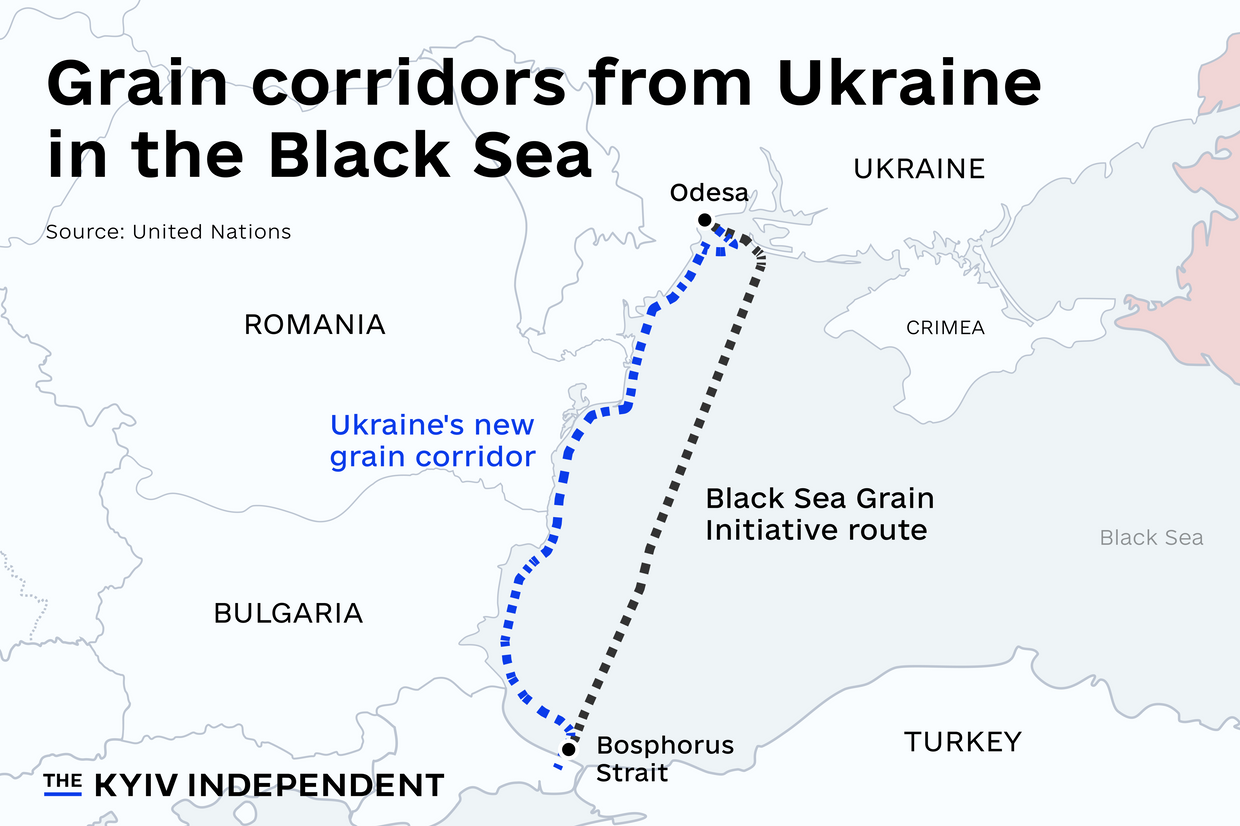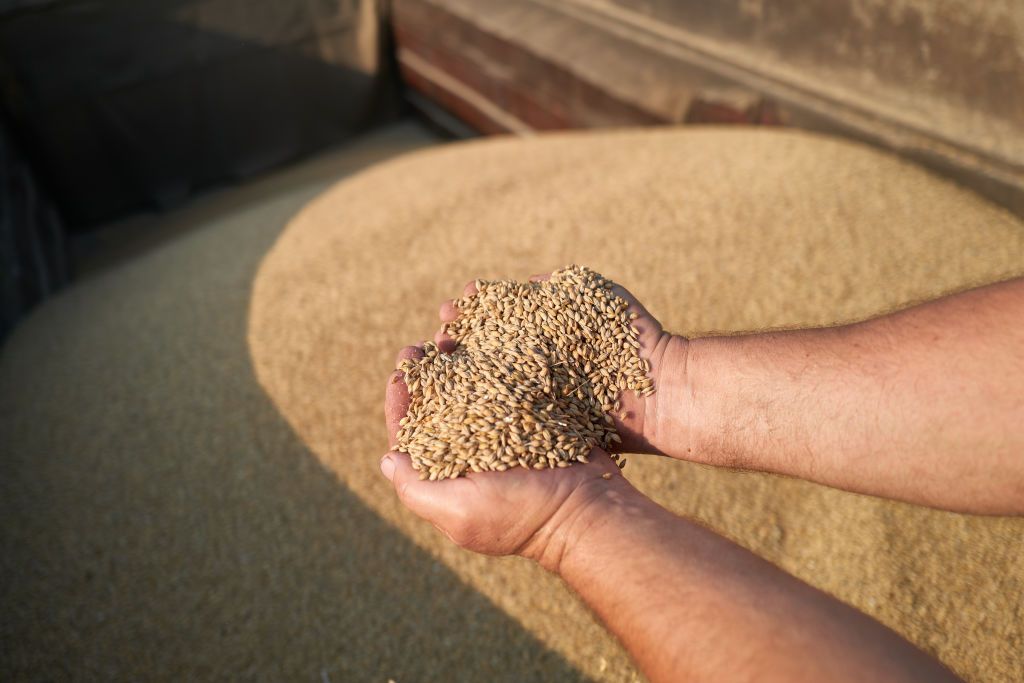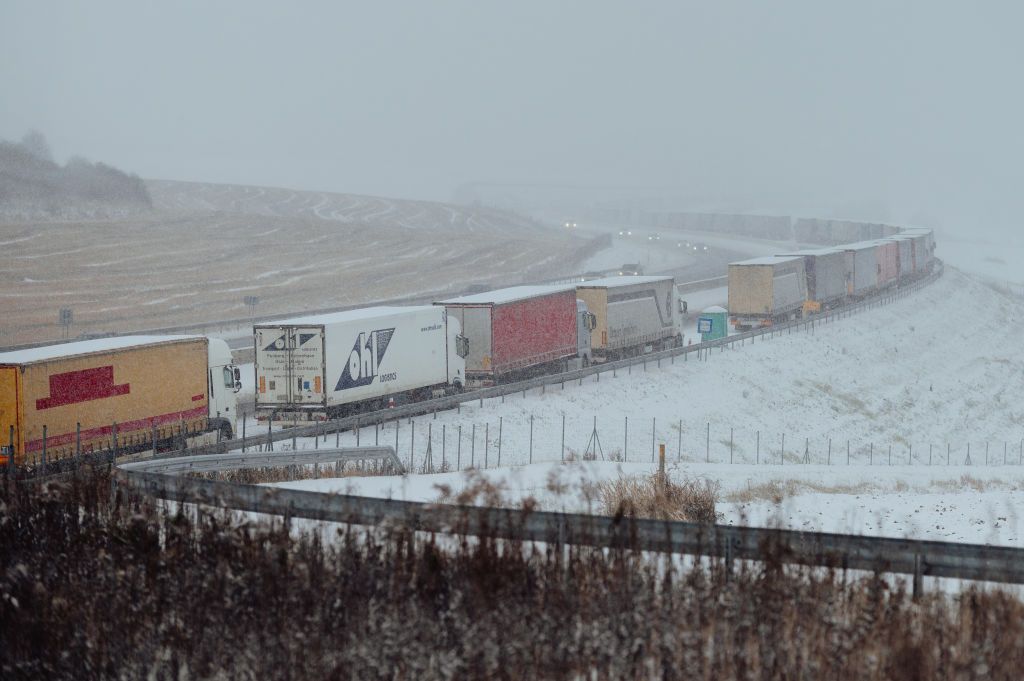As the Polish trucker blockade of Ukrainian haulers heads toward the one-month mark, the toll on Ukraine’s businesses is adding up.
As of Dec. 4, around 2,500 trucks are stuck at the Ukrainian border with Poland waiting to cross because of the protests, which started on Nov. 6 when Polish truckers began blocking Ukrainian haulers carrying commercial goods demanding the EU end permit-free access for Ukrainian trucks put in place at the start of Russia’s war.
One day of downtime due to the protests at the Polish-Ukrainian border costs a single company approximately Hr 1 million (around $27,000) in losses, the European Business Association said, referencing a survey taken among 55 member companies published on Nov. 21.
The Federation of Employers of Ukraine, an industry association, put the direct losses to the country’s economy at around 400 million euros ($437 million) as of Nov. 22.
Taras Kachka, Ukraine's trade representative, told Reuters that Ukrainian exports by truck over the first 26 days of November were $465 million, down from $614 million in October.

“If the blockade of the Ukrainian border is a problem for the Polish economy, then for Ukraine, it’s a catastrophe,” Vladimir Popereshnyuk, co-founder of Ukraine’s private postal service giant Nova Poshta, wrote on his Facebook page on Dec. 1.
Ukraine’s western border has been a major lifeline for Ukrainian companies amid Russia’s full-scale invasion and near-total blockade of Ukraine’s Black Sea ports.
Ukrainian retailers with whom the Kyiv Independent spoke say the blockade has significantly complicated the delivery of imports to the country. Increasing capacity at other border crossings is nearly impossible to do quickly, forcing companies to forgo some imports altogether.
The only bright spot recently was news that Ukrainian and Polish officials had agreed to allow empty heavy-duty vehicles with a total permissible weight of over 7.5 metric tons through the Ugriniv-Dolhobychuv checkpoint.
The entry of empty trucks into Ukraine is no help to Ukrainian retailers who import goods from abroad for their customers, however. Companies are warning that if the situation continues, the following month could lead not only to shortages but increased prices for consumers.
"In the first week, according to preliminary estimates by some major retail chains, the border blockade decreased turnover by approximately 100 million hryvnias (around $2.7 million) per week for one business entity, Natalia Petrivska, executive director at the Ukrainian Food Retail Alliance, told the Kyiv Independent.
“Speaking overall about Ukrainian businesses, the losses for entrepreneurs will be estimated in billions of hryvnias.”
Okko, one of Ukraine's largest gas station chains, said that the cost of transporting fuel has recently increased from $60 to $180 per ton of fuel.
As a result, railway transportation has become faster and more cost effective, Okko CEO Vasyl Danylyak told the Kyiv Independent, adding that his business quickly shifted toward railway deliveries of fuel.
In doing so, the company "did not contribute to excess congestion at the border with our own shipments," he said.
Supply chain disruptions
The press service of the largest Ukrainian chain of grocery supermarkets, ATB—which has over 1,000 stores— told the Kyiv Independent that the blockade of the Polish border has made the delivery of imported products from European countries lengthier and more expensive.
In addition to Polish goods, products from Baltic countries, Germany, the Netherlands, and Belgium are now forced to go through alternative border crossings. A significant portion of ATB’s shelves are lined with products from these countries.
Restrictions on movement at the Polish border have led to queues at other border crossings in Hungary and Slovakia, increased delivery times for European manufacturers' products, and raised the cost of automotive transport.
These actions are negatively impacting the availability of imports in retail networks, increasing the risks of shortages in import-dependent categories, and resulting in rising wholesale and retail prices as well as a reduction in price promotions and other favorable offers for Ukrainian consumers, ATB’s press service said.
Polish businesses are also affected by the strike, according to ATB. The supermarket chain has a high share of Polish manufacturers in categories such as dairy products, frozen vegetables and fruits, pasta, beverages, alcoholic products, cleaning, and cosmetic products.
"The problem cannot be solved by crossing the border through other border crossings. Increasing the capacity of other border crossings cannot be done quickly and without the participation of partner countries — it requires the preparation of road infrastructure, coordination of border, veterinary, sanitary, and other services of both states," the press service of the ATB network said.

Petrivska said that many retailers face a severe challenge in finding transportation, as many trucks are still stranded at the Polish border.
Before the blockade, a single truck could make three to four trips between Ukraine and Europe in a month, but now, they need help to complete even one trip. Due to increased demand for transportation and difficulties in crossing the border, the cost of logistics services has significantly risen.
According to the estimates of the Ukrainian Food Retail Alliance, the delivery delays for perishable goods, which now pass through alternative border crossings, have increased to about a week.
For other food products, wait times can be anywhere from one to two weeks due to route changes and the existing backlog at the Polish border, where trucks can stand for several days.
Non-food items may experience even longer delays. Currently, the priority is given to the delivery of food products, and entrepreneurs are trying not to leave these goods stranded at the Polish border, waiting for the situation to be resolved.
According to Petrivska, many retailers actively review the assortment of imported goods. Items not currently profitable for import are temporarily not being brought in. Other products are delivered through border crossings in neighboring countries with no restrictions but significant delays.
Potential December Woes
Andriy Fedkin, deputy director general for customs affairs at home improvement hypermarket chain Epicenter K, told the Kyiv Independent that the network, like many national businesses, operates through Polish ports, specifically Gdansk and Gdynia.
He said the company is making every effort to ensure that customers do not feel the impact of the blockade and that the temporary difficulties at the border do not affect the offerings at its shopping centers.
The team has been working for many years to reduce import dependence, he said. They have shifted to Ukrainian producers, prefer national suppliers, and are developing their production.
Ivan Pavlik, commercial director of Comfy a household and electronics retail chain, told the Kyiv Independent that logistics costs for the company have increased by two to three times.
Pavlik also said there was the potential for challenges for the chain and its customers later in December if the strikes escalate or involve additional border points with Poland or other countries.

According to Pavlik, the repercussions may extend beyond product shortages, including price increases in December. Already facing higher logistics costs, he emphasized that a more intensified and widespread strike could further escalate these expenses.
Manufacturers and suppliers are expected to pass on these increased costs to consumers, particularly affecting the category of large household appliances, where fewer units can fit into a single truck.
In response, manufacturers and suppliers in the household appliance and electronics sector are reorganizing their supply chains, exploring alternative logistic routes through Slovakia, Hungary, and Romania.
But this solution offers only partial relief due to logistical constraints in Slovakia, where a substantial influx of transport is straining existing processing capacities, Pavlik said.
And as of the morning of Dec. 4, around 650 trucks were lined up at the Uzhhorod-Vysne Nemecke with Slovakia, as the Slovak Union of Carriers organize their own blockade of Ukrainian haulers.
"At the end of last week, the Slovak Union of Carriers again started to block the movement of trucks. As of today's morning, there were around 650 trucks queued towards Ukraine on the border with Slovakia," State Border Guard Service of Ukraine spokesperson Andriy Demchenko told a press briefing in Kyiv on Monday, Ukrinform reported.














